Papers by Tammar Friedman

Religion, 2024
This article examines narratives of coping strategies and worldviews adopted by Jewish Israeli at... more This article examines narratives of coping strategies and worldviews adopted by Jewish Israeli atheists (JIA) during times of emotional turmoil. Through qualitative interviews with 30 participants, we demonstrate how they navigate between rational disbelief in God, Jewish identity, and their need for comfort. While valuing rational thinking, they find it insufficient for emotional solace. To cope, they create alternative ‘just-world’ cosmologies, use coded prayers, and draw on Jewish rituals, both revisiting and personalizing them. While the study of atheism often poses a binary logic that pits religious believers against atheists, religion against science and belief against doubt, our study reveals that for JIA these boundaries are far blurrier. Thus, this study contributes to the growing body of literature on lived atheism, highlighting the nuanced and often contradictory ways in which atheists engage with religious and spiritual concepts.

Journal of religion and health, Mar 15, 2024
This essay deals with perceptions of smoking among Haredi men in Israel. Though trends in smoking... more This essay deals with perceptions of smoking among Haredi men in Israel. Though trends in smoking within the Haredi society have been quantitively examined, no qualitative research has ever focused on the motivations and mindsets stimulating individuals' choices to take health risks despite religious precepts to the contrary. Israeli Haredi men sometimes start smoking in their early childhood and are unmotivated to quit, and such circumstances should be examined. We interviewed 20 Israeli Haredi male smokers and overviewed the Haredi daily press and rabbinical attitudes toward smoking. Our findings indicate that Haredi men typically consider smoking as either permissible or, at worst, a minor sin. From childhood they view smoking as an expression of maturity, and moreover one which is associated with Jewish holidays and particular religious practices. Such perception relies on the Haredi establishment's normative exclusion of smoking from the Halachic commandments that aim to protect health. Finally, we illustrate key points to consider in paths leading to an intervention process to change these norms and practices.
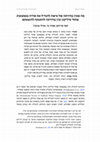
סוציולוגיה ישראלית, 2024
Our paper follows a timeline that begins with women's choice to undergo breast augmentation surge... more Our paper follows a timeline that begins with women's choice to undergo breast augmentation surgery with silicone implants until they decide to remove the implants surgically. The latter is taken alongside joining a Facebook group dedicated to sharing, supporting, and transferring information between women undergoing similar processes. Our findings, based on digital ethnography of the group discourse and interviews with group members, show that the group discourse encourages women to become knowledge agents for themselves and others. It also helped them to understand the risks entailed in augmentation surgery. As the research participants went ahead to remove the implants from their bodies, they expanded their set of considerations in choosing the surgeon, adopting a stance that prioritized their well-being. Further findings pertain to developing a sense of empowerment alongside emotional ambivalence anchored in their separation from a culturally appreciated appearance.

Journal of Religion and Health, 2024
This essay deals with perceptions of smoking among Haredi men in Israel. Though trends in smoking... more This essay deals with perceptions of smoking among Haredi men in Israel. Though trends in smoking within the Haredi society have been quantitively examined, no qualitative research has ever focused on the motivations and mindsets stimulating individuals' choices to take health risks despite religious precepts to the contrary. Israeli Haredi men sometimes start smoking in their early childhood and are unmotivated to quit, and such circumstances should be examined. We interviewed 20 Israeli Haredi male smokers and overviewed the Haredi daily press and rabbinical attitudes toward smoking. Our findings indicate that Haredi men typically consider smoking as either permissible or, at worst, a minor sin. From childhood they view smoking as an expression of maturity, and moreover one which is associated with Jewish holidays and particular religious practices. Such perception relies on the Haredi establishment's normative exclusion of smoking from the Halachic commandments that aim to protect health. Finally, we illustrate key points to consider in paths leading to an intervention process to change these norms and practices.
קריאות ישראליות, Nov 6, 2024
Following the occurrence of the massacre on October 7th, a white Toyota pick-up truck underwent a... more Following the occurrence of the massacre on October 7th, a white Toyota pick-up truck underwent a shift in its previously neutral position. The white pick-up truck has become emblematic of terror due to its portrayal in a short film from Shderot, which was broadcast repeatedly on the news, and the technological-viral characteristics of this war. The white pick-up truck evokes a sense of threat within the individual's marginal consciousness, eliciting a negative emotional response.

JOURNAL OF GENDER STUDIES , 2024
A Women’s choice to undergo breast augmentation surgery with silicone implants may develop into a... more A Women’s choice to undergo breast augmentation surgery with silicone implants may develop into a choice to surgically remove them. In our paper, we employ dimensions of power relating to such decisions to elaborate differential knowledgeability as organizing the temporal dimension of a process and its potential for changing the meaning of a decision formerly taken. Until recently, the possibility of differential access to knowledge relating to silicone implants’ hazards was not explored from a temporal perspective, thus leaving vague the weight of women’s participation in digital platforms that constitute knowledge-supporting space. Our findings relate to a turning point in which increased knowledgeability manifests a change in women’s perception of augmentation surgery as a risk and fed a reflexive process towards a decision to remove the implants surgically. The neoliberal discourse our research participants adopted to describe their experiences demonstrates self-critical perception; thus, their increased knowledgeability did not influence the balance of power between women and medical professionals. Our findings also relate to the development of emotional ambivalence post implants removal surgery, anchored in the research participants’ separation from their culturally appreciated former appearance.

עיונים, Dec 28, 2022
This paper explores spirituality and associated practices in the daily life of Jewish Atheists in... more This paper explores spirituality and associated practices in the daily life of Jewish Atheists in Israel. While the atheist narrative excludes a belief in God, our findings show a bricolage of spiritual practices and strengthening strategies in times of crisis and loss of control. The article uses the ‘Lived Religion’ approach as a theoretical tool for exploration and focuses on everyday practices that facilitate a sociological examination of individual experiences hitherto overlooked. Drawing from in-depth interviews and fieldwork conducted between 2019-2021, our article demonstrates a continuous internal discourse that emphasizes rationalism anchored in an atheistic perspective and spiritual perceptions that resort to comforting practices influenced by a diversity of theological toolbox, such as luck management, specific prayers, perceptions of faith in a just-universe, and relating to Jewish sacred objects in their homes. Describing our interviewees' daily experiences takes their worldview into account but also seeks to illustrate their ‘lived atheism’ as a whole within which rationalism is combined with what we term ‘post-rationalism.’ Our findings add a dimension to the understanding of Israeli secular identities as bricolage, as well as the understanding of religious and spiritual symbolism in ostensibly distant fields.
Conferences by Tammar Friedman

This workshop sets outs to explore the study of lived religion from a comparative perspective. In... more This workshop sets outs to explore the study of lived religion from a comparative perspective. In the past two decades, the concept of lived religion has become a primary analytic key for understanding and interpreting religious life. Applied by now to a wide array of religious practices and experiences, the interest in lived religion reflects a newfound interest in the sociology of religion in ordinary people as religious subjects.
In this workshop, we ask about the theoretical and methodological implications of applying this perspective, whose origins are in the North American sociology of religion, to distinct social, cultural, and religious settings and geographical locations. How does a comparative approach contribute to a more nuanced understanding of different cases of lived religion, rooted in different social and religious settings? How do the different lived dimensions of the religious experience, its materiality, the affective investments it affords, and its embodied performance, manifest differently in distinct religious cultures? And what might be the methodological implications when applying this perspective to diverse cultural and social frameworks?
The workshop will take place at Bar Ilan University, located in the city of Ramat Gan, and at Hadassah Academic College in Jerusalem. It will convene senior and junior sociologists of religion, ethnographers, and religious studies scholars working on diverse topics related to lived religion. It will also include a half-day field trip in Jerusalem.
Thesis Chapters by Tammar Friedman
Jewish-atheist identity in the Israeli social space, based on the “Lived Religion" approach
Conference Presentations by Tammar Friedman
Presentation for the Israeli Sociology conference 53 [Hebrew] 7-9 Feb 2022


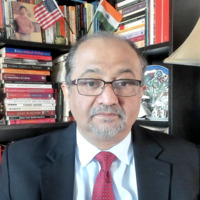

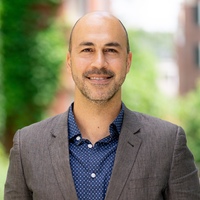

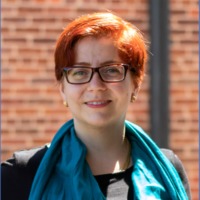
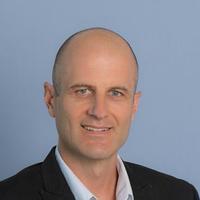
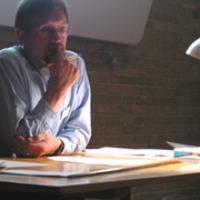

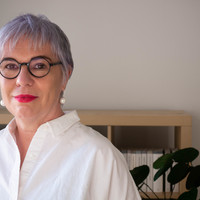
Uploads
Papers by Tammar Friedman
Conferences by Tammar Friedman
In this workshop, we ask about the theoretical and methodological implications of applying this perspective, whose origins are in the North American sociology of religion, to distinct social, cultural, and religious settings and geographical locations. How does a comparative approach contribute to a more nuanced understanding of different cases of lived religion, rooted in different social and religious settings? How do the different lived dimensions of the religious experience, its materiality, the affective investments it affords, and its embodied performance, manifest differently in distinct religious cultures? And what might be the methodological implications when applying this perspective to diverse cultural and social frameworks?
The workshop will take place at Bar Ilan University, located in the city of Ramat Gan, and at Hadassah Academic College in Jerusalem. It will convene senior and junior sociologists of religion, ethnographers, and religious studies scholars working on diverse topics related to lived religion. It will also include a half-day field trip in Jerusalem.
Thesis Chapters by Tammar Friedman
Conference Presentations by Tammar Friedman
In this workshop, we ask about the theoretical and methodological implications of applying this perspective, whose origins are in the North American sociology of religion, to distinct social, cultural, and religious settings and geographical locations. How does a comparative approach contribute to a more nuanced understanding of different cases of lived religion, rooted in different social and religious settings? How do the different lived dimensions of the religious experience, its materiality, the affective investments it affords, and its embodied performance, manifest differently in distinct religious cultures? And what might be the methodological implications when applying this perspective to diverse cultural and social frameworks?
The workshop will take place at Bar Ilan University, located in the city of Ramat Gan, and at Hadassah Academic College in Jerusalem. It will convene senior and junior sociologists of religion, ethnographers, and religious studies scholars working on diverse topics related to lived religion. It will also include a half-day field trip in Jerusalem.